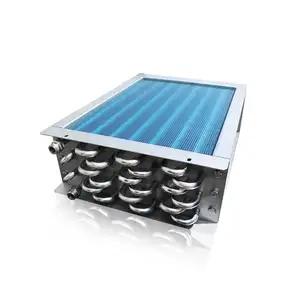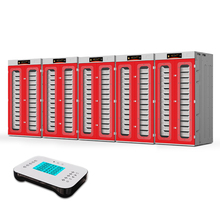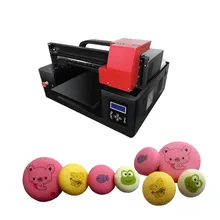Exploring Heat Pipe Heat Exchangers
Heat pipe heat exchangers are at the forefront of thermal management solutions, serving a myriad of industrial sectors. These devices are pivotal in transferring heat between two or more fluids, making them indispensable in environments where temperature regulation is critical. The versatility of heat pipe exchangers allows for their application across various fields, from power generation to food processing.
Types and Applications
The industrial landscape showcases a diverse range of heat pipe heat exchangers, each tailored to meet specific requirements. The double pipe heat exchanger, also known as a pipe in pipe heat exchanger, is a simple form that is widely utilized for its ease of maintenance and effective heat transfer capabilities. On the other hand, the concentric tube heat exchanger offers a compact solution, ideal for space-constrained applications. These exchangers are integral to industries such as chemical processing, biofuel production, and even in the meticulous process of climate controlling beer production in brewing.
Materials and Features
Material selection is paramount in the construction of heat exchangers, influencing their efficiency and longevity. Copper pipe heat exchangers are renowned for their corrosion resistance and antimicrobial properties, making them suitable for potable water cooling systems. Stainless steel coil tubing heat exchangers are favored for their rapid heat transfer, essential in large-scale water treatment facilities. For high-temperature and high-stress environments, such as power plants, titanium models offer unmatched durability, capable of withstanding extreme conditions without compromising performance.
Design Advantages
The design of a heat pipe heat exchanger is a testament to its adaptability and efficiency. The double tube heat exchanger design, for instance, allows for easy inspection and cleaning, thereby reducing downtime. The thermosyphon heat exchanger capitalizes on the natural convection of heat, eliminating the need for pumps and reducing energy consumption. For those utilizing wood as a heat source, the wood stove pipe heat exchanger efficiently recovers heat from flue gases, exemplifying the innovative reuse of energy.
Selection Considerations
Choosing the right heat pipe heat exchanger involves a thorough understanding of the specific industrial process it will serve. Factors such as fluid properties, temperature ranges, pressure levels, and environmental conditions must be considered. The exhaust pipe heat exchanger is particularly useful in applications where waste heat recovery can significantly enhance system efficiency. Meanwhile, the flue pipe heat exchanger is an excellent choice for those looking to improve the heat output of wood-burning stoves while reducing the amount of wood consumed.
Environmental Impact and Efficiency
In an era where sustainability is paramount, heat exchangers like the stove pipe heat exchanger and wood burning stove flue heat exchanger play a vital role in reducing carbon footprints by maximizing energy efficiency. The use of materials such as ASTM A179 and SA 179 tubes in manufacturing ensures that these systems not only meet industry standards but also contribute to a more sustainable operation by enhancing heat transfer efficiency and reducing energy loss.

















































 浙公网安备 33010002000092号
浙公网安备 33010002000092号 浙B2-20120091-4
浙B2-20120091-4